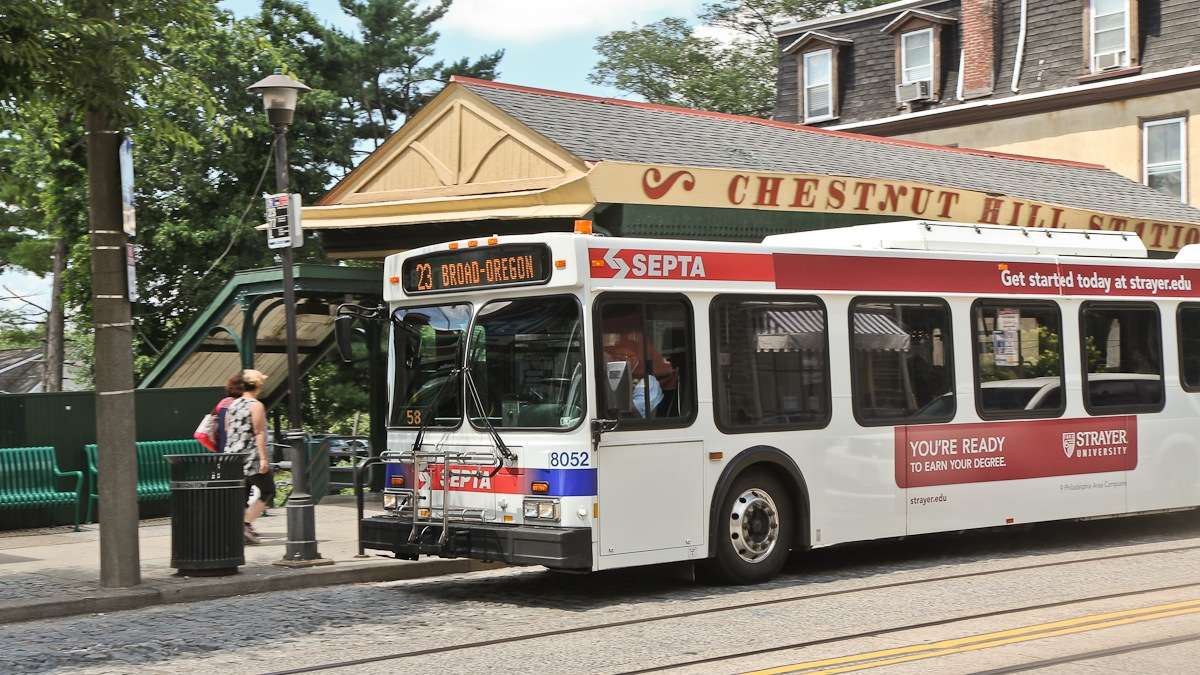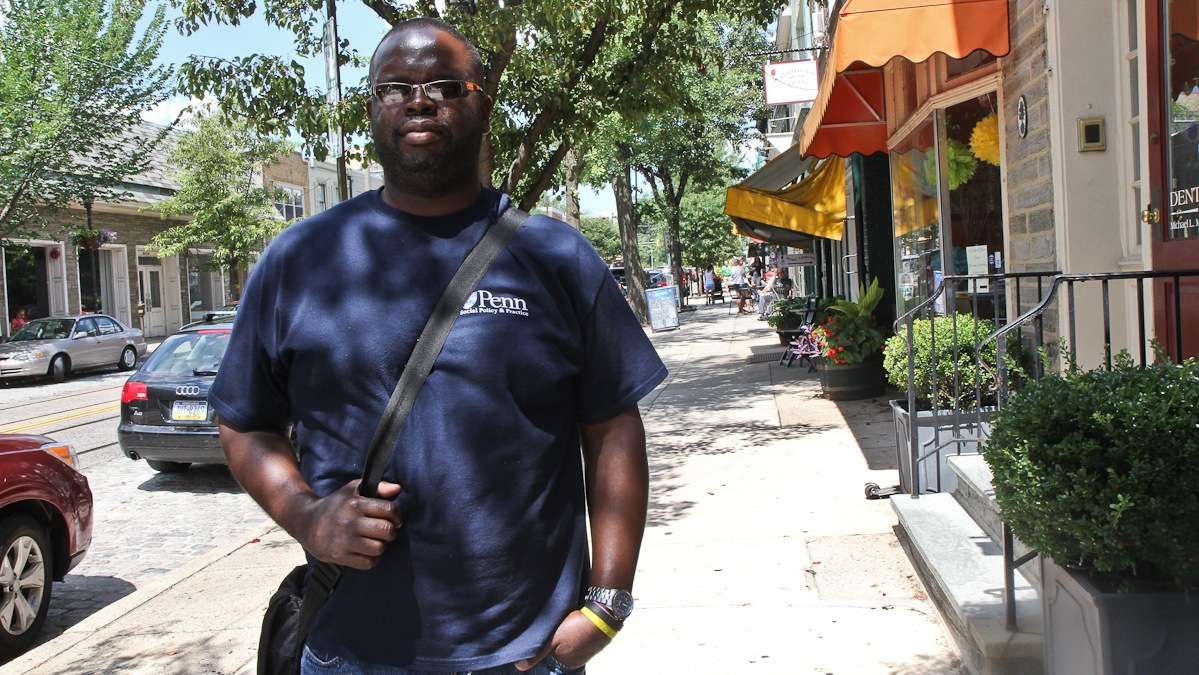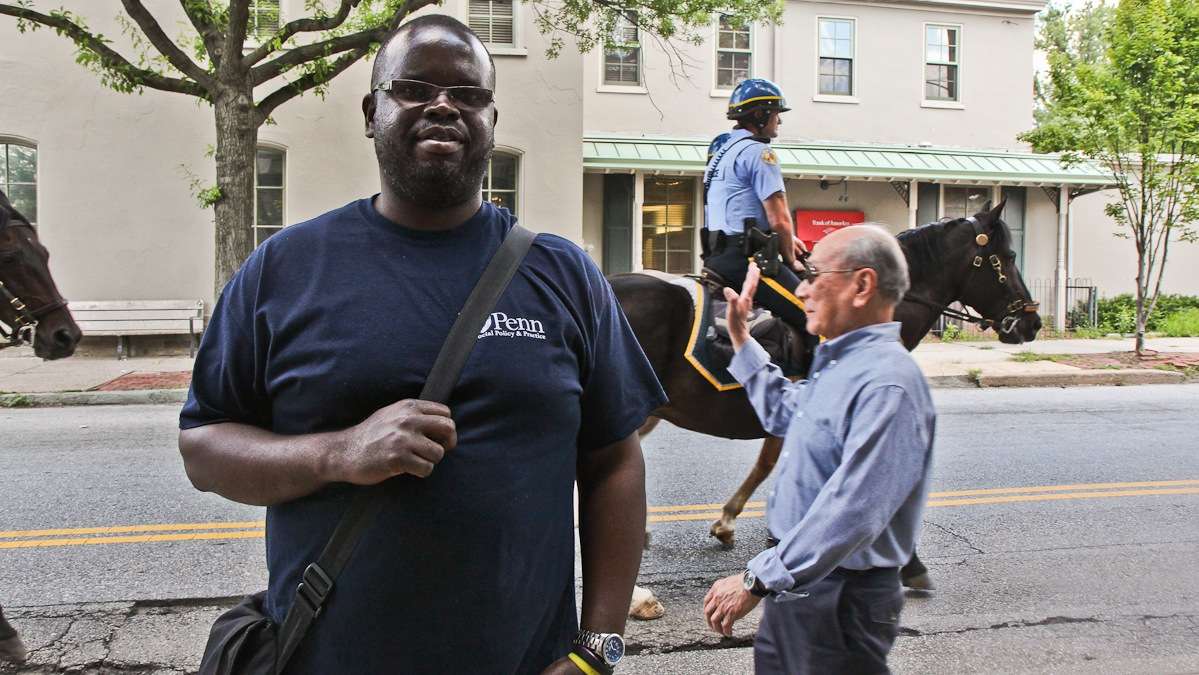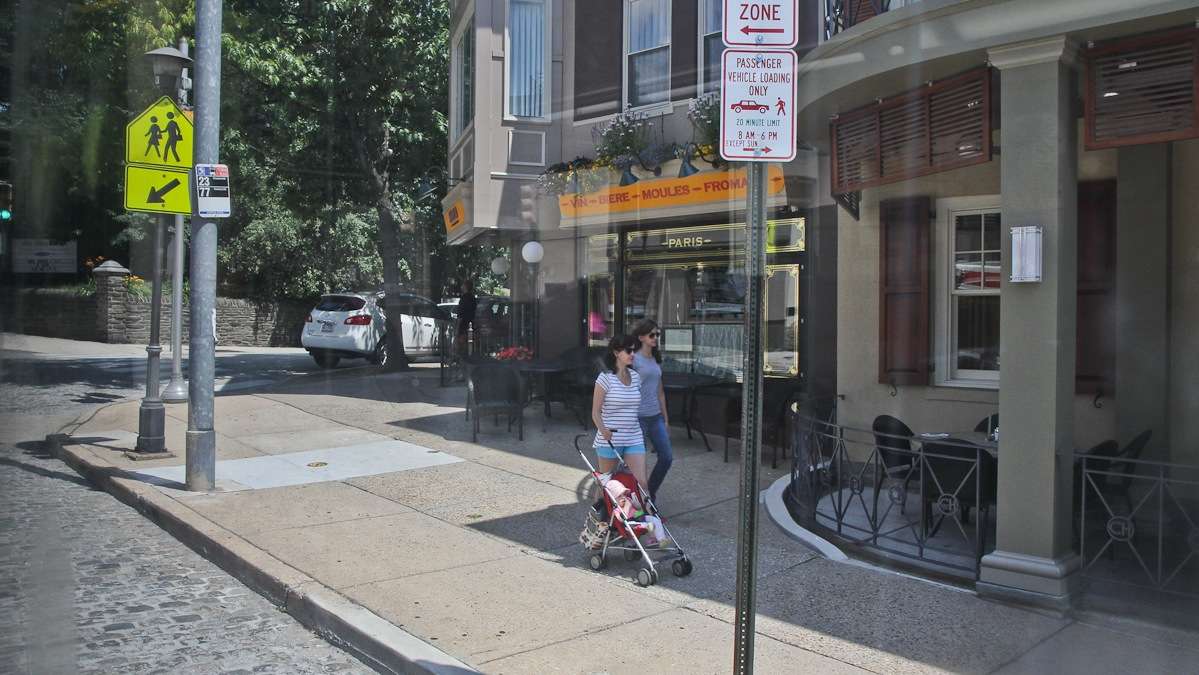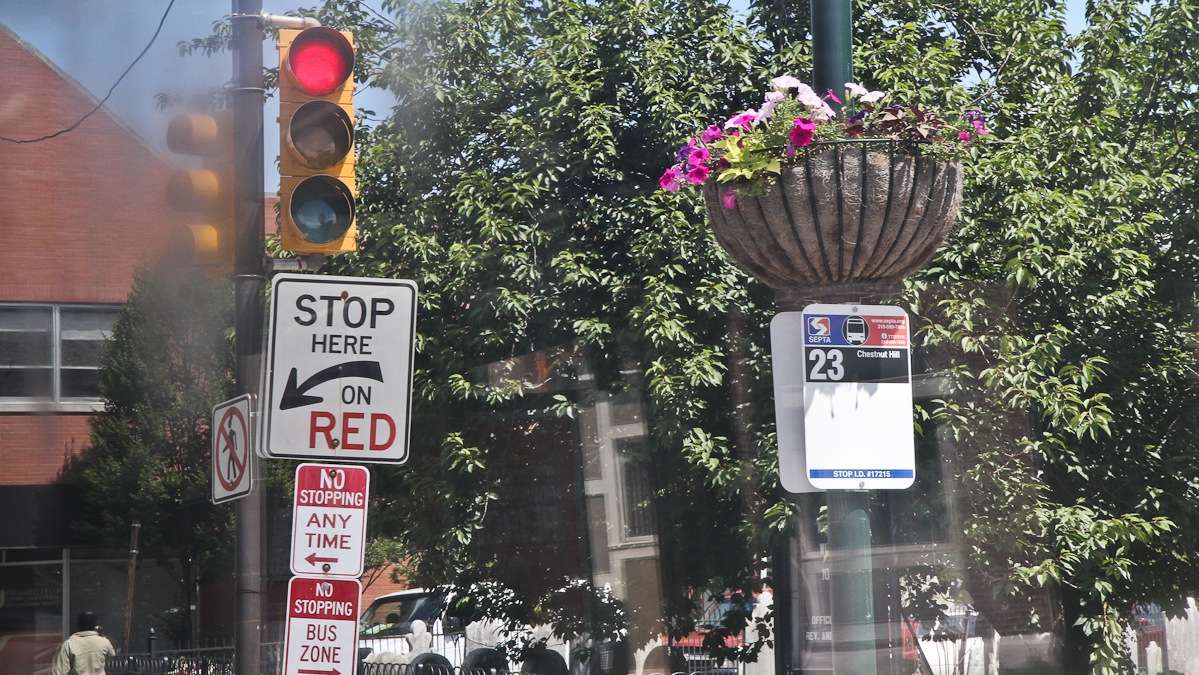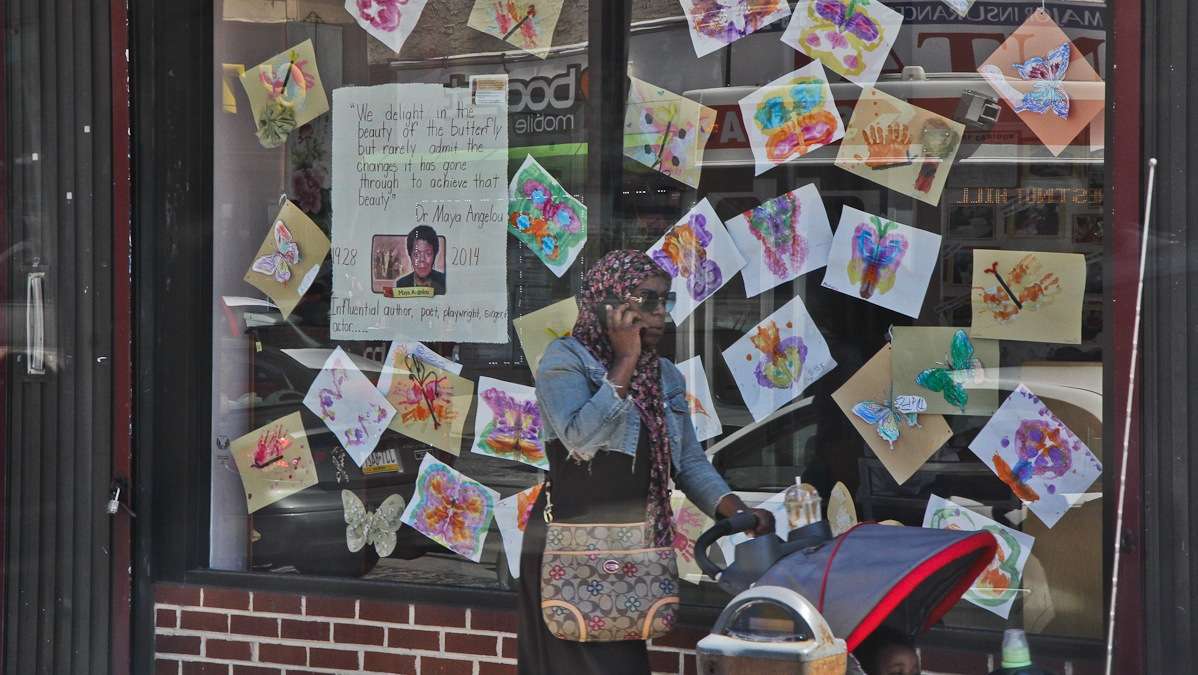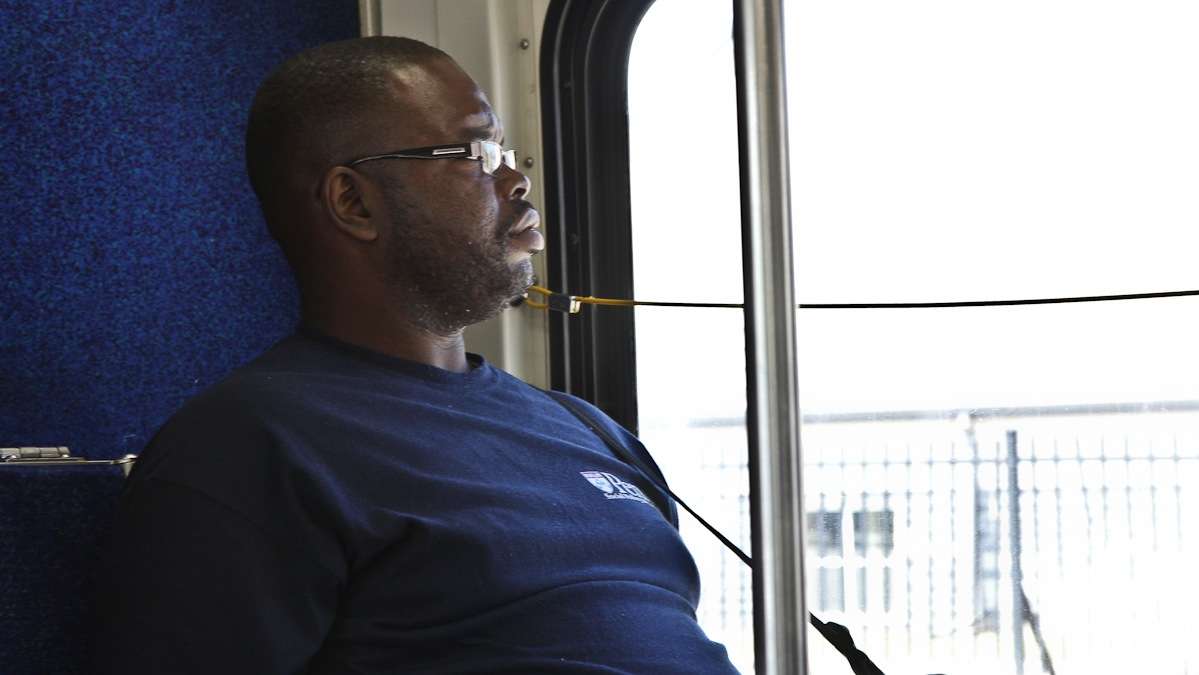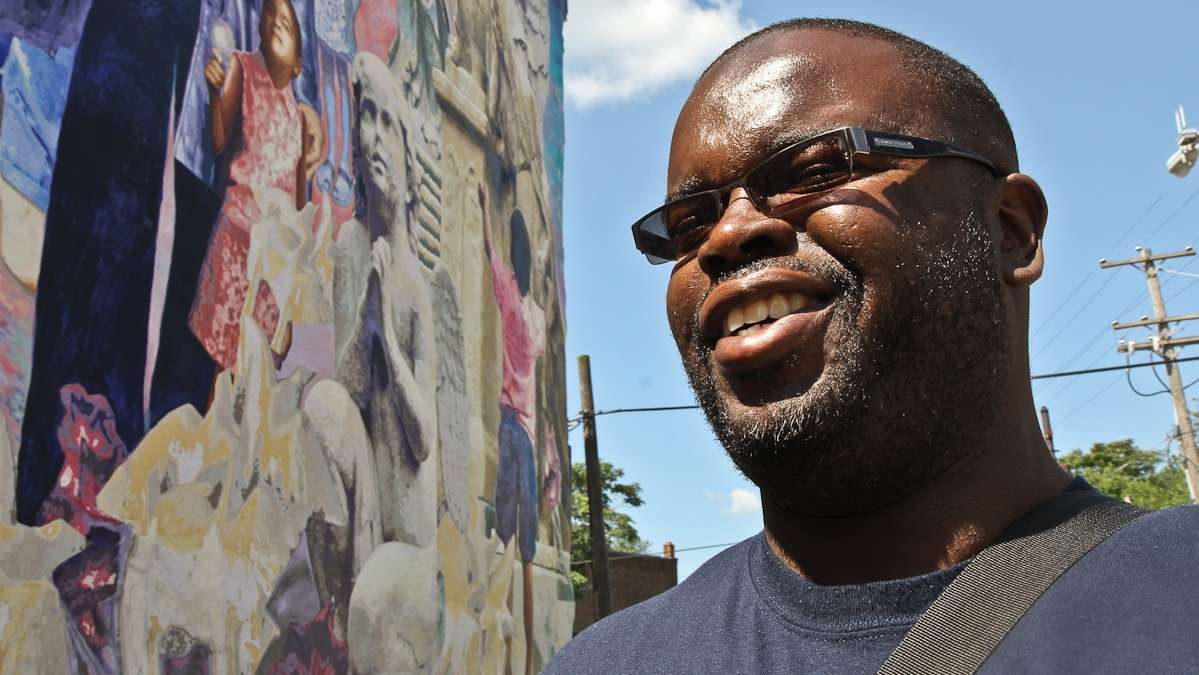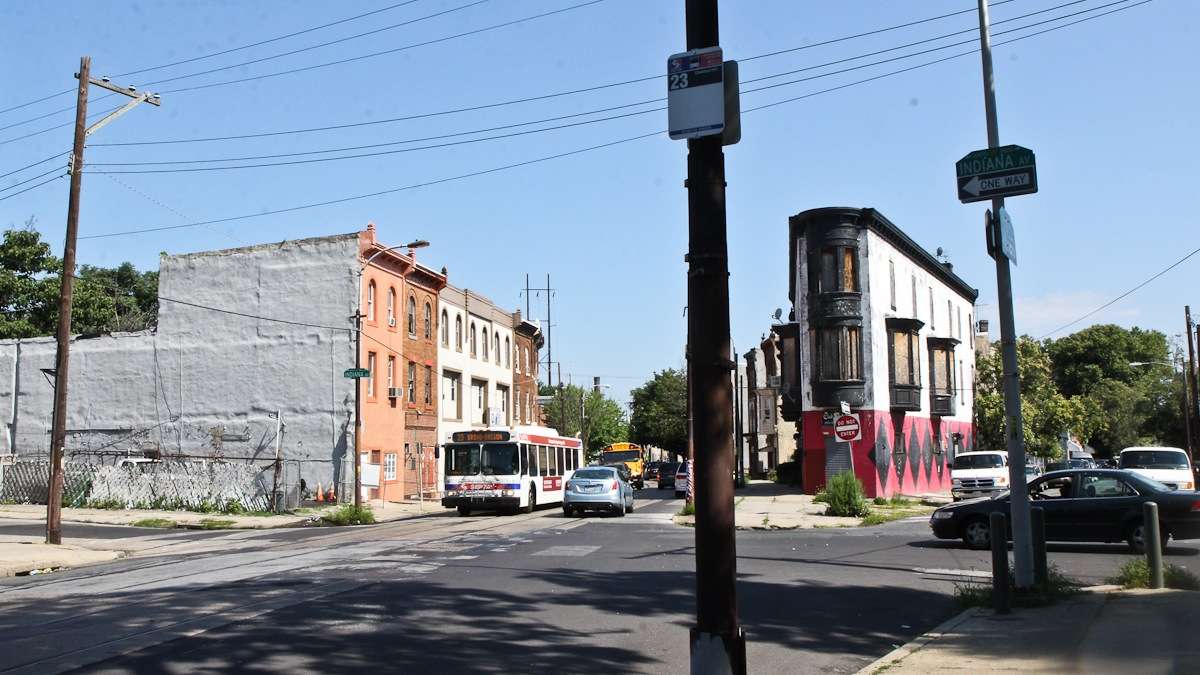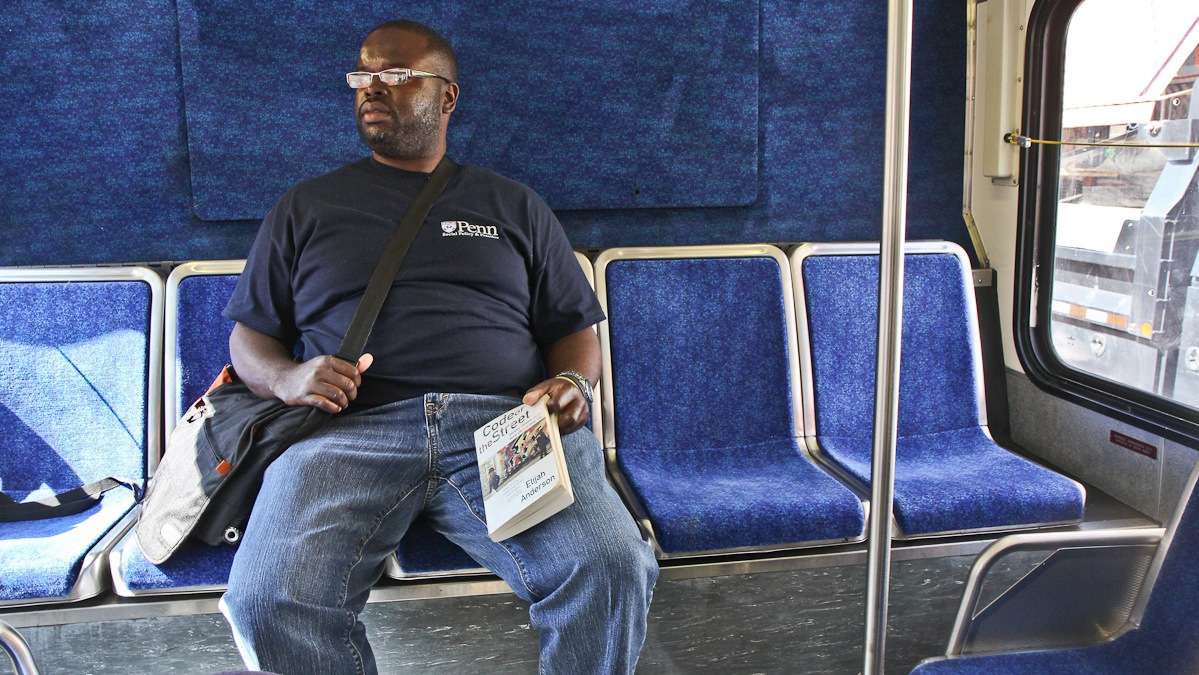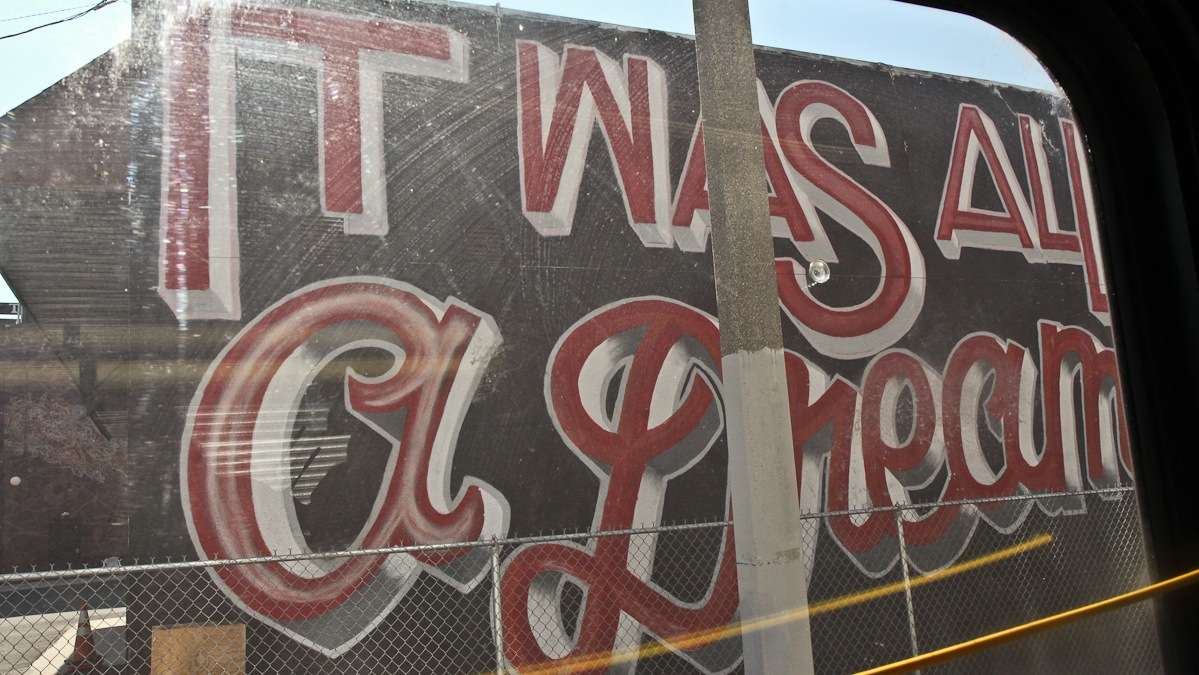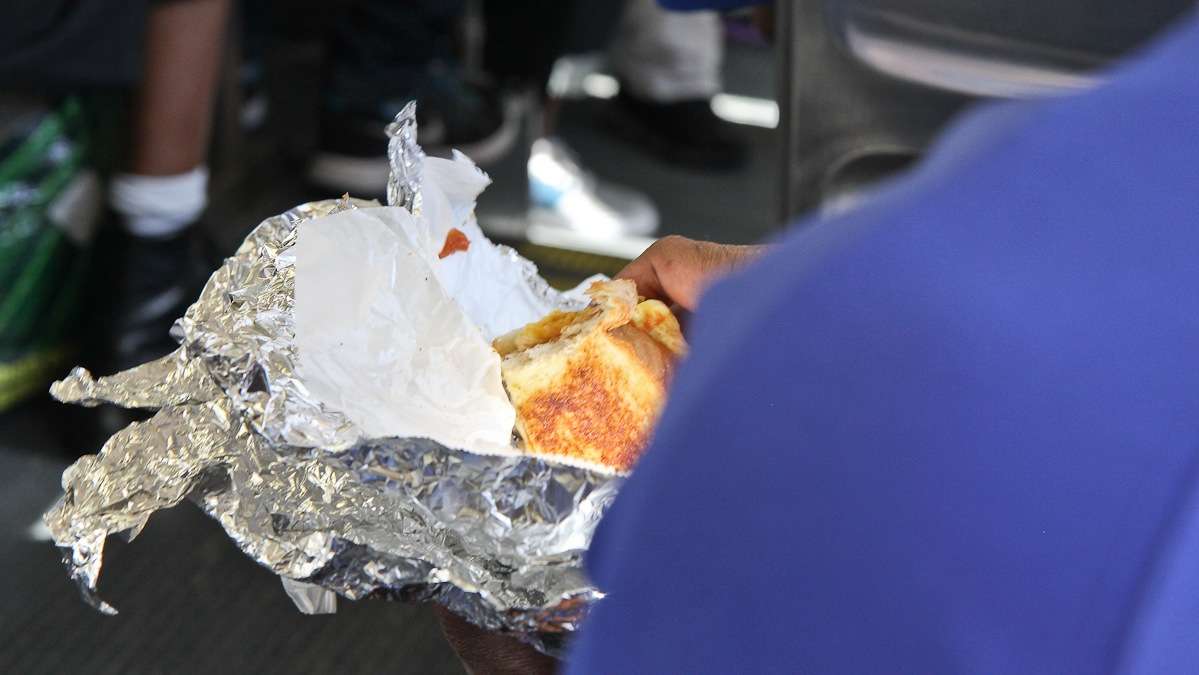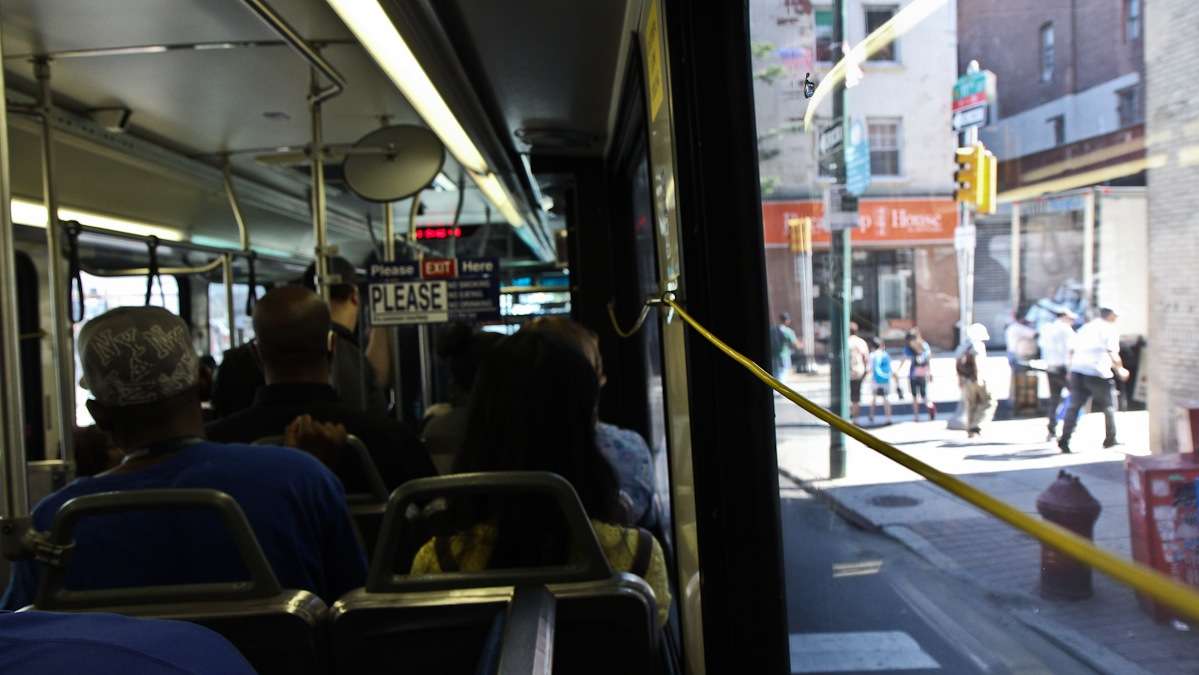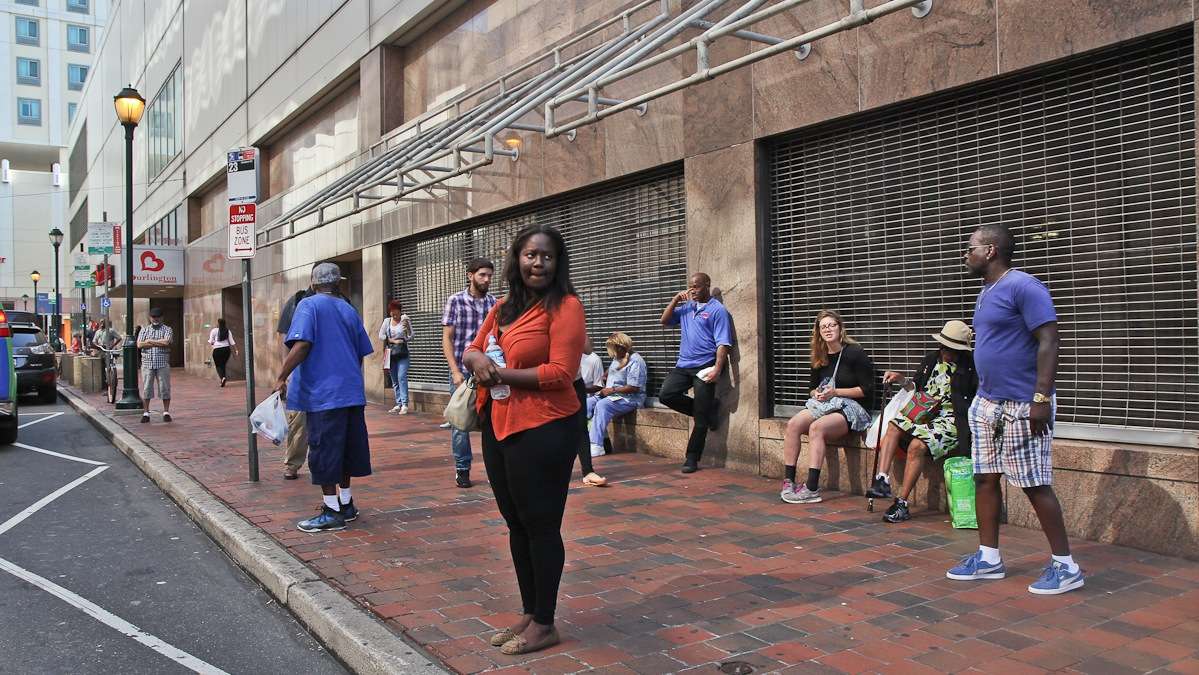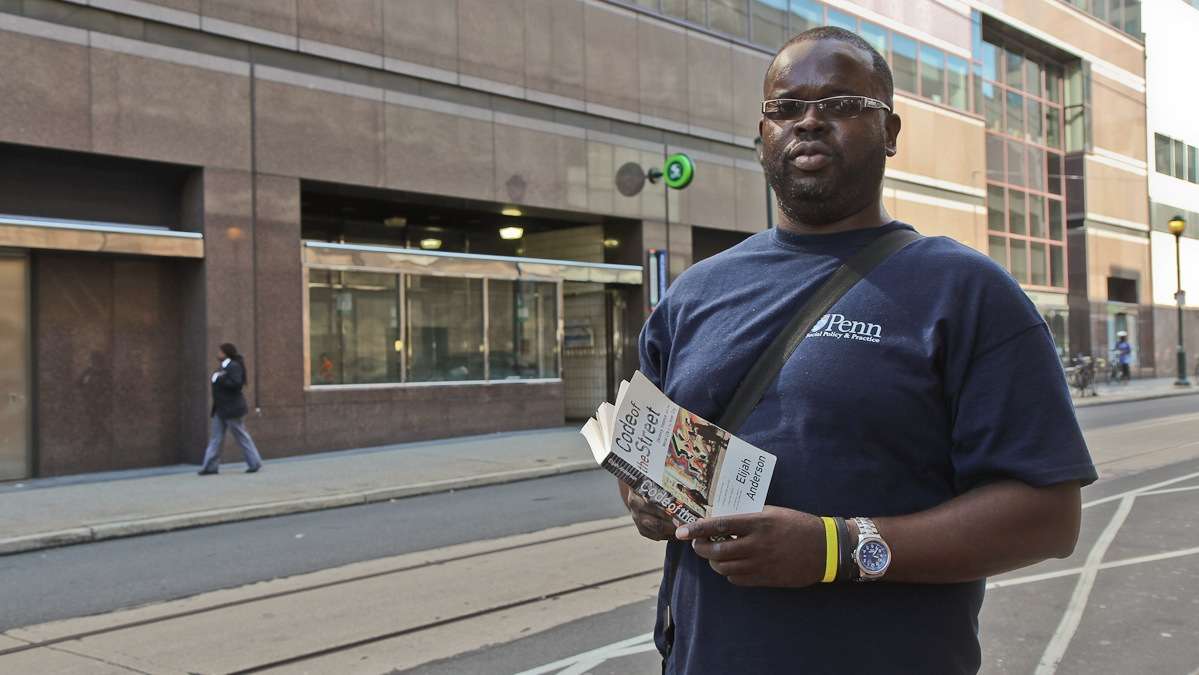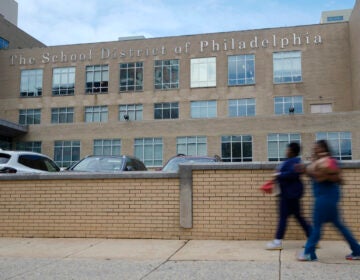From armed robbery to criminology: A Philadelphia Community College success story
ListenWhen he was 35, Quaris Carter arrived in North Philadelphia as a stranger to the East Coast, carrying two garbage bags of clothes and barely a dime.
After more than three decades in Texas, he was just grateful for the chance to redefine his life.
“I actually sort of saw myself change,” he said. “I started feeling free, like, I’m going somewhere new. It’s a new start.”
This was July of 2010.
The story of how he got there and, within four years, graduated from Community College of Philadelphia is is a tale of American reinvention, one that begins in Houston’s drug-riddled “Fifth Ward” neighborhood at the height of the 1980s crack epidemic.
The son of a devout Southern Baptist single mother, Carter says he was a good student for a while, but the pressures of the neighborhood overcame him.
“Everyone was telling me to get money. And I figured getting money was the only way out,” he said.
“My mom never knew I sold crack until about a year ago. She never caught me, she never seen me with money. Well, the money she actually got off me when she searched me when I came home. I told her I was shooting dice. She was like, ‘Don’t be shootin’ dice, but as long as you’re not selling drugs …'”
At 12, already drinking and smoking weed, he made $500 a week dealing crack after school, often selling to adults who were more than twice his age.
“We had older guys, like five, six years older, who told us first off, ‘Don’t do it.’ Then they were like, ‘This is how you do it,'” he recalled. “So it wasn’t structured like we had a boss or an underboss or gang leader. It wasn’t like that. It was just like common respect. Be nice to the elderly. Don’t disrespect no moms or grandparents or anything like that.”
In high school, though, Carter quit selling and convinced himself to focus on school. This sort of pivot has become a recurring theme in his life: Every time he bends toward the darkness, something inside pushes him to keep striving toward the light.
And so, for a while, he was a quintessential Texas high-schooler. The linebacker-sized teen joined the football team and earned cash by mowing lawns and washing cars.
But that phase, too, did not last.
Code of the street
Now, 20 some years later in Philadelphia, Carter, 38, lives in a $350-a-month rooming house on a dilapidated corner of Diamond Street in North Philly.
To afford the application fee for community college, he had to sell his plasma at a blood bank
At community college, two of his sociology professors saw potential and took an interest. They urged him to ride the 23 SEPTA bus from Center City to Chestnut Hill. The bus sputters past the full swath of city life, from downtrodden storefronts and vacant lots to million-dollar homes on the city’s edge.
“They just start telling me you got to start building social and cultural capital,” he explained. “You need to start getting out and meeting different people in different social classes, and they can show you how beautiful life is.”
The assignment was inspired by sociologist Elijah Anderson’s 1999 book, “Code of the Street,” an acclaimed cultural analysis of life along Germantown Avenue.
On a recent Friday, Carter retraced that journey, meditating on the mistakes of his past as he peered through the scuffs on the big bus window at the changing urban terrain.
At the intersection of Germantown and Indiana avenues, Carter said that after graduating high school, he went to the University of Houston.
“I was doing well, but I had no family support,” he said. “They were telling me, like, college is good but you need to go get a job to help pay some bills and things like that. So I just stopped going to school.”
He started looking for work, even thought about the Navy, but soon became discouraged that his life wasn’t taking the shape that he had hoped.
“After that, I just started committing crimes,” he said.
Some guys he knew from the neighborhood had been robbing jewelry stores at gunpoint, and they convinced Carter to join them.
Compared to the strictures of his Baptist upbringing, crime had its appeal.
“They wasn’t telling me that I had to wait to die to have a better life. They was like, ‘Look, you can have a better life right now. Don’t be lazy. Let’s go get this money,'” he recalled.
“And I seen they was doing it, so I was like, ‘cool.’ And I knew I was smarter than them, so I just, I guess back then, just applied myself.”
‘Never shoot anyone’
If a store opened at 9, Carter and his crew would show up at 9:02 with ski masks and automatic weapons.
“I had a policy … Never shoot anyone. Don’t shoot anyone. They going to give it to you, like, it’s not theirs. Don’t shoot ’em. If you shoot them, somebody going to shoot you,” he said. “You know these are people coming to work … We going to get what we wanna get and we gonna leave. It’s simple as that.”
They robbed stores in the Houston area for three months. Carter had a connection who would pay him $10,000 to $15,000 for each duffel bag full of jewelry.
“I was like, ‘This is stupid, but it’s money,'” he said. “And as long as I have money, I knew that people would – not respect me; I knew they wouldn’t respect me – but … like me.”
Predictably, Carter was soon arrested and convicted. He was sentenced to three years in prison. After he got out, he worked as an electrician.
Feeling lost and downtrodden, Carter began robbing jewelry stores again.
Again, he was arrested. This time he spent six years in prison.
Not going to give up
At Germantown and Glenwood avenues, Carter, visibly frustrated with his past, said committing crimes was the stupidest thing he’s ever done.
“If you don’t want to work out here in free society, you going to work in prison. They going to lock you up in an isolation cell, in a supermax and they’re going to mistreat you,” he said. “Robbing. pulling guns on people. There’s no justification for committing crime. I realize that now, just because you’re poor doesn’t mean you commit crime. I’m not committing crime now, and I’m poor.”
During the second stint of prison, he said, reading Nelson Mandela’s “Long Walk to Freedom” changed him.
“I was like, ‘If he can do that, I have no reason to give up on my life. If he could do it for 27 years, I have no reason.’ So I just made my mind up,” he said. “I’m not going to give up.”
After getting out of prison the second time, Carter fled to the East Coast – even though it meant leaving behind his teenage daughter.
“I start seeing some of the same old behaviors, because some of the people I know, they start contacting me, and I start hanging around them, but I wanted to change because I didn’t want to go back.”
He punched a one-way ticket on a Greyhound bus from Houston to Wilmington, Delaware, crossed the Mississippi River with only a few personal items stowed in a tattered cardboard box.
He had hoped a friend in Wilmington could help him establish a base on the East Coast, but almost immediately, Carter found himself homeless. By night, he found refuge in a cot at a men’s shelter. By day, he wandered the stacks of the public library.
Feels like freedom
After plodding through Germantown, the 23 bus then bent into more affluent Mount Airy. Carter looked out the window with pleasure.
“It makes me feel like I’m at peace,” he said. “The environment, it makes me feel like I don’t have to be on my toes and have to look around all the time and see what’s going on.”
Carter’s time in Wilmington was short-lived, as a flier for a recovery house led him to Philadelphia, where he fully bought into the notion that he could redefine his destiny.
“Once I started going to Narcotics Anonymous meetings, they started talking about, ‘We’re going to love you, until you learn how to love yourself.'”
A therapist in one of his recovery programs sensed Carter’s intellectual potential and pushed him to try community college. There, with the help of a few committed faculty mentors, he made it into the honors program. He’s also taken summer courses in the University of Pennsylvania’s Pipeline for Promise program.
Carter, who graduated from CCP in the spring, has started coursework at LaSalle to finish his bachelor’s degree.
The sociology and criminal justice courses are tough, he says, especially social statistics, but he’s managing the work well while earning money in a part-time position with The Free Library.
Getting off the bus at the edge of the city in Chestnut Hill, Carter breathed a noticeable sigh of relief.
“It feels happy, peaceful, successful, progressive, educational,” he said. “It feels like freedom.”
Police officers on horseback smiled and waved as they clicked and clacked across the cobblestones.
“The people over here, it’s like they’re used to success. They don’t feel that entitlement where they have to take something from someone else,” he said. “Where at Germantown and Indiana, it felt like, at any moment anything could happen.”
When Carter needs a break from the din of his Diamond Street rooming house, he comes to Chestnut Hill simply to walk the tree-lined streets.
“I was stressing because of where I live at,” he explained. “It’s like, they’re kind of jealous because I’m going to school.”
One day, Carter dreams of buying a house here, a place where maybe his daughter could come and stay.
But he says he’s only able to even have that thought because of his renewed belief in his own power to learn.
“The way out doesn’t have to consist of crime, drugs, violence, suicide, none of that,” Carter said. “Just talk to someone, and seek that education.”
WHYY is your source for fact-based, in-depth journalism and information. As a nonprofit organization, we rely on financial support from readers like you. Please give today.



